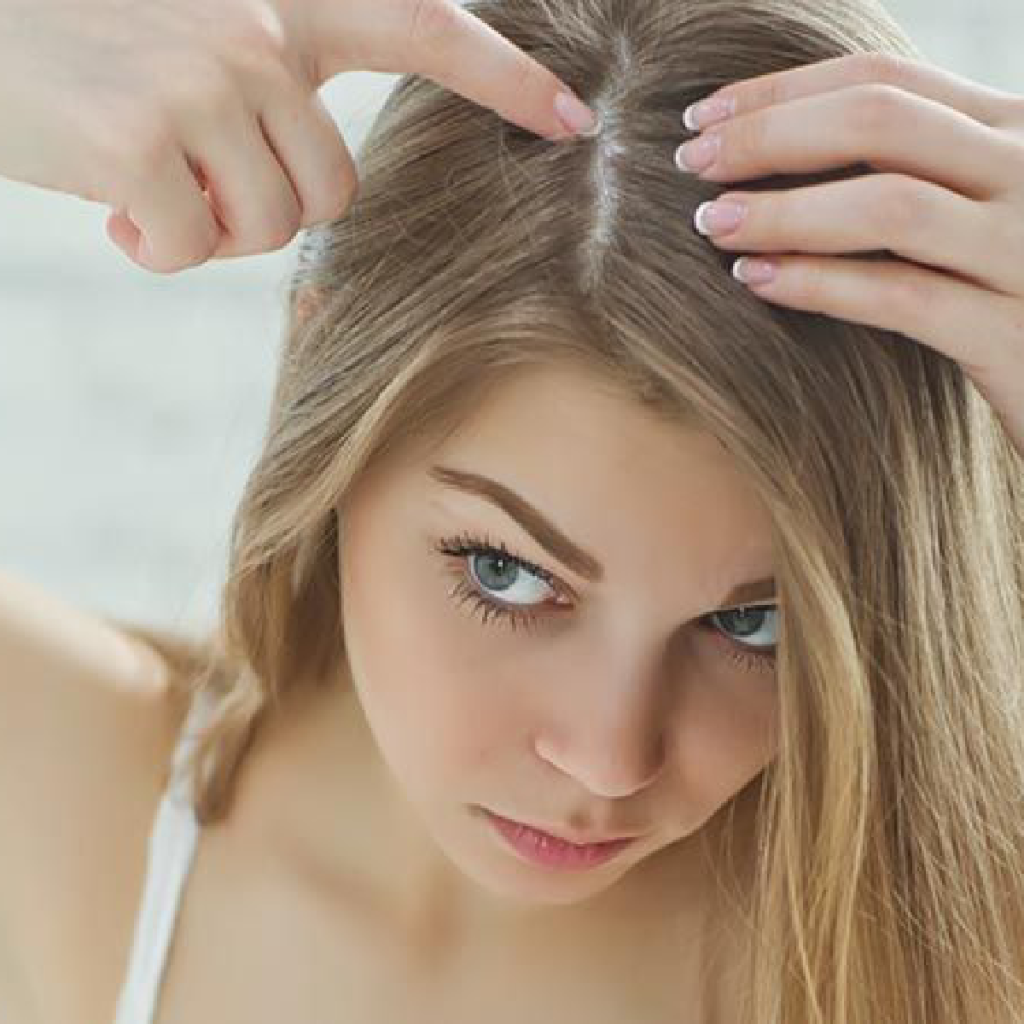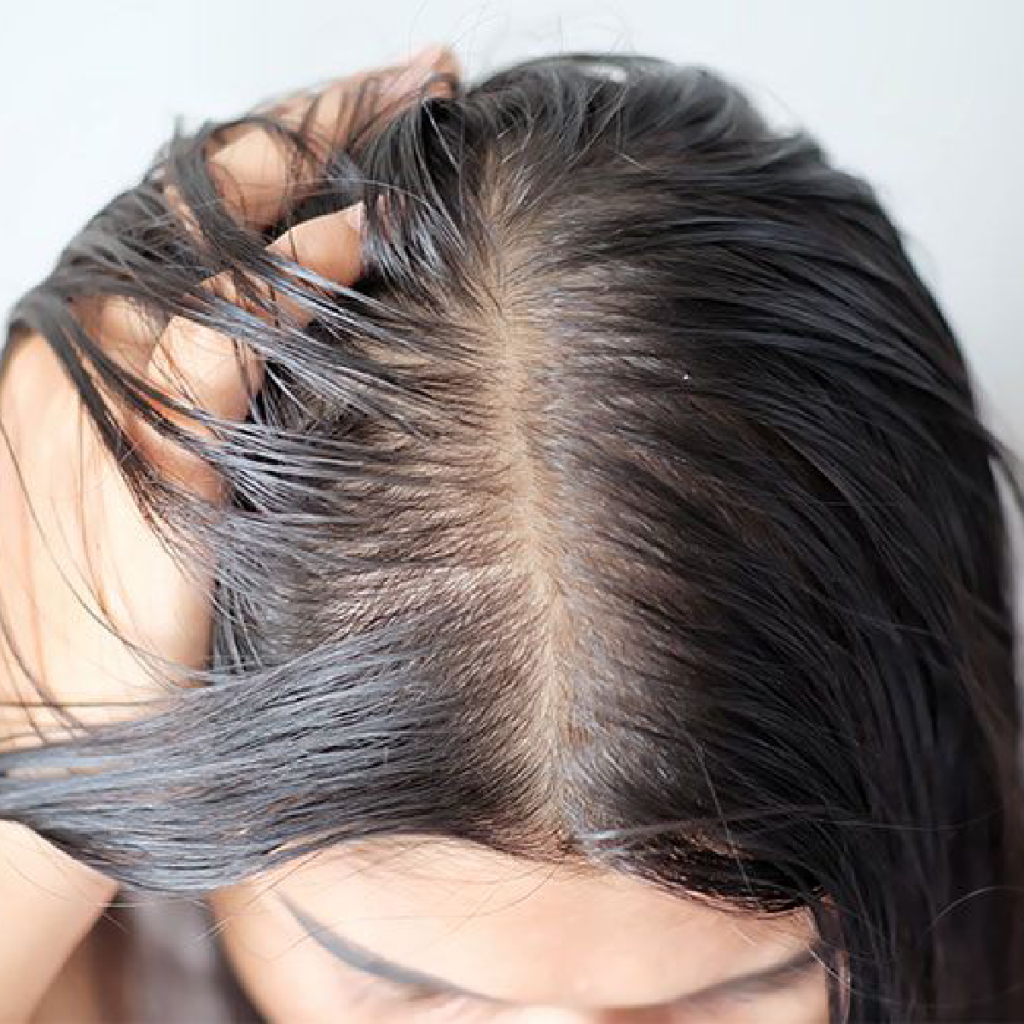Discover the fascinating connection between scalp health and hair growth rates.
How Does Scalp Health Impact Hair Growth Rates?
In the world of beauty, we often focus on the lusciousness and length of our locks. We try every hair growth serum, vitamin, and oil on the market, desperate to uncover the secret to Rapunzel-worthy tresses. But have you ever stopped to consider the importance of scalp health in this equation? That’s right, my friend – your scalp may hold the key to unlocking the growth potential of your hair. Intrigued? Let’s dive deep into this hairy topic and unravel the mysteries of how scalp health impacts hair growth rates!

Understanding the Basics of Hair Growth
Before we dive headfirst into the scalp-deep waters, let’s take a moment to understand the basics of hair growth. Believe it or not, your hair goes through a complete cycle of growth, rest, and fallout – just like the changing seasons. This process, known as the hair growth cycle, consists of three distinct phases: anagen, catagen, and telogen.
During the anagen phase, also known as the active growth phase, your hair bulbs are busy producing new cells and pushing them out to create those glorious strands. This phase can last anywhere from two to six years, depending on your genes and overall health.
Next up is the catagen phase, which marks the transition from active growth to a resting state. This brief interlude lasts for about two weeks, during which your hair follicles shrink and detach from their blood supply.
Lastly, we have the telogen phase, often referred to as the resting phase or the shedding stage. Roughly 10-15 percent of your hair follicles are in this phase at any given time. After a cozy three-month nap, your hair strands bid adieu and make room for new ones to sprout. And voila – the cycle starts anew!
Factors Influencing Hair Growth
Now that we’ve covered the hair growth cycle, let’s explore the factors that can influence this biological masterpiece. From genes to hormones, here’s what plays a part in determining your hair’s growth potential:
- Genetics: You can blame your parents for more than just that awkward dance move. Turn out, your hair growth pattern may also be inherited from them.
- Hormones: Those sneaky hormones have their hands in everything, including hair growth. Hormonal imbalances, such as those caused by pregnancy or menopause, can impact the hair growth cycle.
- Diet and nutrition: It turns out that those leafy greens and juicy berries aren’t just good for your overall health. A balanced diet rich in vitamins and minerals can contribute to healthy hair growth.
- Stress levels: Ah, stress – the ultimate hair growth nemesis. Excessive levels of stress can send your hair into a premature “resting” phase, leading to increased shedding and decreased growth.
- Scalp health: And finally, we arrive at the hero of our story – scalp health. Yes, my friend, the condition of your scalp can have a significant impact on your hair growth rates. Let’s dig deeper, shall we?
When it comes to scalp health, there are several factors to consider. One crucial aspect is maintaining a clean and balanced scalp environment. Regular shampooing and conditioning help remove excess oil, dirt, and product buildup, allowing your hair follicles to breathe and function optimally.
In addition to cleanliness, proper hydration is essential for a healthy scalp. Just like the rest of your body, your scalp needs moisture to stay nourished and supple. Drinking an adequate amount of water and using moisturizing hair products can help prevent dryness and flakiness.
Another factor that can impact scalp health is the presence of any underlying scalp conditions. Issues like dandruff, psoriasis, or eczema can disrupt the hair growth cycle and lead to hair loss. Treating these conditions with medicated shampoos or seeking professional help from a dermatologist can help restore scalp health and promote hair growth.
Furthermore, maintaining a balanced pH level on your scalp is crucial. The natural pH of your scalp is slightly acidic, which helps protect against harmful bacteria and fungi. Using pH-balanced hair products and avoiding harsh chemicals can help preserve this delicate balance and support a healthy environment for hair growth.
Lastly, stimulating the scalp through gentle massages or using specialized scalp brushes can promote blood circulation. Improved blood flow brings essential nutrients and oxygen to the hair follicles, encouraging healthy growth.
So, as you can see, the condition of your scalp plays a vital role in the overall health and growth of your hair. By taking care of your scalp and addressing any underlying issues, you can maximize your hair’s growth potential and achieve luscious locks.
The Importance of Scalp Health
A healthy scalp is like the fertile soil in which your hair seeds find nourishment and flourish. Without a healthy foundation, it’s like trying to build a sandcastle in a storm – futile and messy, to say the least.
The Role of the Scalp in Hair Growth
Your scalp isn’t just a placeholder for your precious hair follicles – it’s an active player in the hair growth game. Think of it as the conductor orchestrating a symphony of healthy hair growth. A well-nourished scalp provides your hair follicles with the necessary nutrients, blood flow, and oxygen to flourish.
On the flip side, an unhealthy scalp can wreak havoc on your hair growth ambitions. Conditions like dandruff, scalp psoriasis, eczema, and folliculitis can disrupt the harmonious orchestra, leading to itchiness, inflammation, and impaired hair growth.
Common Scalp Conditions and Their Impact on Hair
Let’s take a moment to shed some light on a few of the most common scalp conditions and how they can impact your glorious mane:
- Dandruff: Ah, the pesky white flakes that rain down on your shoulder like confetti. Dandruff can not only leave you feeling self-conscious but can also contribute to hair follicle inflammation and temporary hair loss.
- Scalp Psoriasis: This autoimmune disorder can turn your scalp into a battleground, with red, scaly patches popping up like volcanoes. Sadly, scalp psoriasis can lead to hair thinning and even patchy hair loss if left untreated.
- Eczema: The itchiest of enemies, eczema can leave your scalp feeling more like the Sahara desert than a flourishing oasis. Constant scratching can damage hair follicles and potentially lead to hair loss in the affected areas.
- Folliculitis: This sneaky infection results in inflamed hair follicles, causing tiny pustules or bumps on the scalp. If untreated, folliculitis can damage hair follicles and disrupt the hair growth cycle.
How Scalp Health Affects Hair Growth Rates
Now that we’ve examined the role of the scalp in hair growth and the impact of common scalp conditions, it’s time to address the million-dollar question: how does scalp health impact hair growth rates?
The Connection Between Scalp Health and Hair Growth
Picture this: your scalp is a garden, and each hair follicle is a bloom waiting to burst forth. Just as a well-tended garden yields beautiful flowers, a healthy scalp nurtures vibrant, resilient hair.
When your scalp is in peak condition, your hair follicles receive the nourishment they need to produce strong, healthy strands. An optimal scalp environment promotes proper blood circulation, oxygen flow, and nutrient delivery to the hair bulbs, allowing them to do their growth magic.
On the other hand, neglecting scalp health can have some unfortunate consequences for your hair growth goals. Dryness, excess oil, product buildup, and blocked hair follicles can all hinder the growth process, leaving you with lackluster locks.
Scientific Studies on Scalp Health and Hair Growth
While personal anecdotes and wise tales can certainly be intriguing, let’s not dismiss the power of science in this hairy matter. Several scientific studies have shed light on the correlation between scalp health and hair growth rates.
In a groundbreaking study published in the Journal of Cosmetic Dermatology, researchers found that participants who practiced regular scalp care and maintained a healthy scalp environment experienced increased hair thickness and faster hair growth rates compared to those who neglected scalp health.
Another study conducted by the International Journal of Trichology observed the effects of a scalp massage on hair growth in participants with androgenetic alopecia (aka male or female pattern baldness). The study concluded that daily scalp massage for 24 weeks led to a significant increase in hair thickness.
Maintaining a Healthy Scalp for Optimal Hair Growth
Now that we’re armed with knowledge about the importance of scalp health, let’s explore how we can become scalp health warriors and propel our hair growth rates to new heights!
Best Practices for Scalp Care
1. Cleanse with care: Use a gentle, sulfate-free shampoo to wash your hair and scalp regularly. Be sure to massage your scalp gently to stimulate blood circulation and promote a healthy environment for hair growth.
2. Exfoliate like a pro: Just as your skin benefits from exfoliation, so does your scalp! Incorporate a scalp scrub or exfoliating treatment into your hair care routine to remove dead skin cells and unclog hair follicles.
3. Nourish from within: Remember – you are what you eat! Include nutrient-rich foods like leafy greens, nuts, fish, and berries in your diet to promote overall scalp and hair health.
Recommended Products for Scalp Health
1. Tea tree oil: Known for its antifungal and antimicrobial properties, tea tree oil can help combat dandruff and soothe an irritated scalp. Look for shampoos or scalp treatments containing tea tree oil for a refreshing scalp boost.
2. Aloe vera: This wonder plant is a godsend for scalp health. Aloe vera can moisturize a dry scalp, reduce inflammation, and promote a healthy environment for hair growth. Look for shampoos or scalp masks with aloe vera as a key ingredient.
3. Peppermint oil: Not only does peppermint oil smell delicious, but it can also provide a cooling sensation and improve scalp blood circulation. Look for hair products infused with peppermint oil to invigorate your scalp and promote hair growth.
Addressing Scalp Issues for Improved Hair Growth
Despite our best efforts, sometimes our scalps need a little extra TLC to get back on the path to hair growth glory. Here are a few ways to address common scalp issues:

Treating Common Scalp Conditions
1. Dandruff: Combat those pesky flakes with an anti-dandruff shampoo containing active ingredients like zinc pyrithione or selenium sulfide. Be consistent with your use, and soon those snowstorms on your shoulders will be a thing of the past.
2. Scalp Psoriasis: Consult a dermatologist for proper diagnosis and treatment options tailored to your specific needs. Medications and topical treatments can help manage the symptoms and promote hair growth.
3. Eczema: Keep your scalp well-hydrated with gentle, fragrance-free moisturizers and steer clear of harsh hair products that can trigger flare-ups. If symptoms persist, seek advice from a dermatologist.
When to Seek Professional Help for Scalp Issues
While a good hair day can work wonders for our confidence, sometimes our scalps need the guidance of a hair care professional. Here are a few signs that it’s time to seek expert help:
- Severe or persistent scalp itching, redness, or inflammation
- Sudden and dramatic hair thinning or hair loss
- New or changing scalp lesions or bumps
- Scalp discomfort or pain that worsens over time
If you experience any of these symptoms, don’t hesitate to schedule an appointment with a dermatologist or trichologist to get to the root of the issue.
So, my fellow hair enthusiasts, let’s not underestimate the power of scalp health in the quest for luscious locks. By nurturing our scalps and addressing any pesky issues that arise, we can pave the way for optimal hair growth rates. Remember – a healthy scalp is the secret weapon in our follicular arsenal. Happy hair growing!





